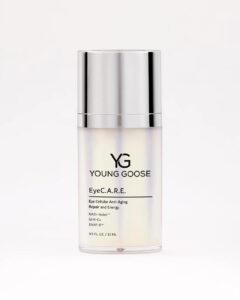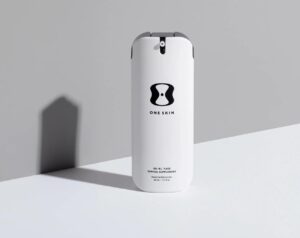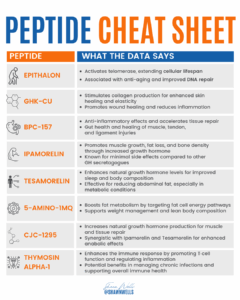Peptides 101: What Are Peptides, Why They Matter, and How to Start

If you’ve ever wondered what are peptides when scrolling through skincare labels or supplement ads, you’re not alone. Many health-minded adults feel stuck, taking vitamins daily yet missing targeted results for firm skin, joint comfort, or faster workout recovery.
Peptides offer a precise way to bridge that gap. These short chains of amino acids act like cellular messengers, telling your body to ramp up collagen, calm inflammation, and speed repair. In this article you’ll learn what peptides are, what do peptides do in the body, and get a beginner peptide guide with safety checks and simple lab markers so you can start confidently.
What Are Peptides and What Do They Do in the Body?
Peptides are short chains of amino acids, usually 2 to 50 residues, acting as powerful messengers in your system. Here’s how they differ from related terms:
- Proteins are long chains folded into complex structures that perform a vast array of functions.
- Collagen is a structural protein that gives skin and joints strength; when you take collagen powder you break it into smaller fragments.
- Peptides are those fragments that bind specific receptors to trigger targeted actions, such as boosting collagen synthesis, modulating inflammation, or regulating hormones.
Because of their size peptides penetrate tissues more easily than full-length proteins. They offer high specificity, so you get focused benefits, like skin repair or muscle recovery, without the off-target effects of broader compounds. Studies in the Special Issue on bioactive peptides confirm their potency and safety profile in areas from drug delivery to functional foods.
Why Peptide Supplements Matter Now
You might wonder what are peptide supplements used for. Searches for “peptide supplement” jumped 54% last year to about 7,500 monthly searches, proof that people want more than general vitamins. Whether you’re curious about peptide benefits for skin, peptide supplements for muscle growth, or peptide supplements for weight loss, there’s a compound designed for your goal.
Peptides bridge the gap between small-molecule drugs and large proteins. They work alongside your body’s own systems. If you’ve asked do peptides help you lose weight or what are peptides for bodybuilding, you’re tapping into a growing trend toward precision supplementation. For example, a 2021 systematic review on collagen peptide supplementation and exercise found that 15 g/day improved joint function, reduced pain, and increased collagen synthesis in both recreational athletes and older adults .
Are Peptides Safe? Risks and Legality
A common question is are peptides safe? Overall, when sourced responsibly and used within clinical guidelines, peptides have a strong safety record. Still, you’ll want to know what are the negatives of taking peptides:
- Potential injection-site reactions for injectable protocols
- Occasional headaches or mild water retention
- Lack of long-term safety data for some novel compounds
You may also ask are peptides legal in the USA? Most nutritional-grade peptides are legal and available without prescription. However, research-grade products often come with “for laboratory use only” labels. Always verify that your supplier is compliant with FDA and local regulations.
How to Start: A Simple Safety and Testing Roadmap
For anyone asking how to start with peptides, here’s the checklist I use for myself and recommend to clients:
- Choose a quality peptide supplement: Look for cGMP-certified brands with transparent dosing.
- Verify purity: Review certificates of analysis showing ≥ 95% purity and no heavy-metal contamination.
- Begin with a low dose: Start at 25% of the recommended amount for one week to assess tolerance, answering is it safe to take peptides every day?
- Track lab markers:
- hsCRP for systemic inflammation
- HbA1c for metabolic control
- Complete blood count for immune status
If you’re wondering where can I get peptides, reputable supplement companies and compounding pharmacies are good places to start. Always check that their products are labeled for human use rather than research only.
By understanding what are peptides in the body, focusing on safety, and monitoring results, you’ll have the confidence to explore peptide therapy without guesswork.
Top Beginner Peptide Supplements and How to Use Them
When you ask what is a peptide supplement, you want options that deliver clear, targeted benefits without complexity. Here are three of my go-to choices, each backed by research and suitable for most beginners:
- Collagen Peptide Supplement
- What it is: Hydrolyzed collagen fragments that support skin, joint, and gut health.
- What are peptides for skin: These peptides stimulate fibroblasts to produce new collagen and elastin.
- Evidence: A systematic review found that 15 g/day of collagen peptide supplementation plus exercise improved joint function, reduced pain, and boosted collagen synthesis in both recreational athletes and older adults.
- Dose: 10–20 g daily, split morning and evening with vitamin C for best results.
- Tip: Look for a product with Type I and III collagen and a clean label.
- GHK-Cu (Copper Peptide) Serum or Oral Peptide Supplement
- What is an example of a peptide: GHK-Cu is a naturally occurring copper peptide.
- What are peptides used for: It signals skin cells to remodel extracellular matrix, improves skin firmness, and supports hair growth.
- Evidence: Natural GHK-Cu levels shrink by more than 60% from age 20 to age 60, so replenishment is crucial for skin health.
- Dose: Apply a 2% peptide serum once daily or take 1 mg orally.
- Tip: Use after cleansing and before moisturizer for best absorption.
- BPC-157 (Body Protection Compound)
- What are peptides for bodybuilding: This peptide boosts tendon, ligament, and muscle repair.
- Peptide benefits: It enhances angiogenesis and controls inflammation to speed healing.
- Evidence: Preclinical studies show accelerated recovery in tendon and muscle injury models via oral and injectable routes.
- Dose: 200–500 mcg daily, subcutaneous or oral for 4–6 weeks.
- Tip: Combine with light movement and a collagen peptide supplement for synergistic support.
Peptide Skincare Favorites
Topical peptides bind to receptors on skin cells, acting as messengers to increase collagen, boost elasticity, and lock in moisture. They deliver targeted peptide benefits for skin exactly where you need them.
Below are a few peptide skincare products from brands I personally use and trust:
- Young Goose Eye C.A.R.E.
A NAD⁺-boosting eye cream featuring GHK-Cu copper peptides, hyaluronic acid, and botanical extracts. It diminishes fine lines, reduces puffiness and under-eye bags, and delivers deep hydration for a refreshed look. Use code Shawn10 for 10% off.
- OneSkin OS-01 FACE Topical Supplement
A daily moisturizer powered by the OS-01 Senescence Peptide™ plus niacinamide and multi-weight hyaluronic acid. Clinically shown to increase epidermal thickness, support collagen synthesis, and improve firmness and radiance. Fragrance-free and safe for sensitive skin. Shop the formula.
- Mythos Advanced Peptide Eye Serum
A next generation eye serum powered by GHK-Cu copper peptide, niacinamide, guarana extract, and ginseng extract. It smooths crow’s feet, firms the delicate eye area, reduces puffiness, and provides lasting hydration. Use code SHAWN10 for 10% off.
For more trusted peptide skincare options check out my full skincare recommendations here.
How to Monitor Progress and Adjust
Understanding how to know how much peptides to take comes down to tracking both lab data and how you feel:
- Baseline Labs: Order hsCRP, HbA1c, and a complete blood count.
- Subjective Journal: Record changes in skin texture, joint comfort, sleep, mood, and digestion.
- Follow-Up Labs: Repeat key markers after 8–12 weeks to see shifts in inflammation or metabolic control.
- Adjust Dose or Cycle:
- If you feel benefits and see improved labs, maintain dose for 3–6 months.
- If results plateau, consider a two-week break or switch to another natural peptide.
This approach gives you a clear peptide therapy roadmap rather than guessing from anecdotes.
Common Questions About Peptide Supplements
- Who needs to take peptides?
Anyone wanting targeted support for skin, joints, sleep, or recovery can benefit. Peptide supplements are especially helpful for adults over 30 as natural peptide levels decline with age. - Is it safe to take peptides every day?
For most nutritional-grade peptides yes, daily use within recommended doses is well tolerated. Just follow product guidelines and cycle off after 12–16 weeks if you plan long-term use. - What are the drawbacks of peptides?
- Some protocols use injections, which can cause site reactions.
- Short-term side effects may include mild headaches or water retention.
- Novel peptides have limited long-term safety data.
- Are peptides steroids?
Steroids alter hormone receptors broadly. Peptides bind specific receptors with targeted actions and do not convert to steroids in the body.
Final Thoughts
Peptide supplements have the power to deliver precise, science-backed benefits in areas ranging from skin rejuvenation to workout recovery. By choosing quality products, starting conservatively, and tracking your results, you’ll harness peptide benefits safely and effectively.
Ready to dive deeper into peptide therapy and get my best tips each week? Subscribe to my newsletter for fun, science backed, actionable insights that keep you on top of your health.
References
Khatri, M., Naughton, R. J., Clifford, T., Harper, L. D., & Corr, L. (2021). The effects of collagen peptide supplementation on body composition, collagen synthesis, and recovery from joint injury and exercise: A systematic review. Amino Acids, 53(3), 379–393.
Martínez-Villaluenga, C., & Hernández-Ledesma, B. (2020). Bioactive peptides for health benefits. In International Journal of Molecular Sciences (Vol. 21, Issue 17, Article 6379).
Pepys, M. B., & Hirschfield, G. M. (2003). C-reactive protein: a critical update. The Journal of Clinical Investigation, 111(12), 1805–1812.
Pickart, L. (2010). The human tripeptide GHK and tissue remodeling. Journal of Biomaterials Science, Polymer Edition, 21(10–11), 1343–1367.
Šikić, P., Eraković Haber, V., Martinis, M. L., & Tomac, J. (2018). BPC 157 and novel vision of pentadecapeptide protection and therapy. Journal of Physiology and Pharmacology, 69(1), 3–21.
World Health Organization. (2010). Use of glycated haemoglobin (HbA1c) in the diagnosis of diabetes mellitus: abbreviated report of a WHO consultation. Clinical Chemistry and Laboratory Medicine, 48(4), 429–438.
Share
Who is Shawn Wells?
Although I’ve suffered from countless issues, including chronic pain, auto-immunity, and depression, those are the very struggles that have led me to becoming a biochemist, formulation scientist, dietitian, and sports nutritionist who is now thriving. My personal experiences, experiments, and trials also have a much deeper purpose: To serve you, educate you, and ultimately help you optimize your health and longevity, reduce pain, and live your best life.
ORDER THE ENERGY FORMULA
Discover the 6 foundational pillars to cultivate a more caring, compassionate, connected, unified and purpose-filled life.








